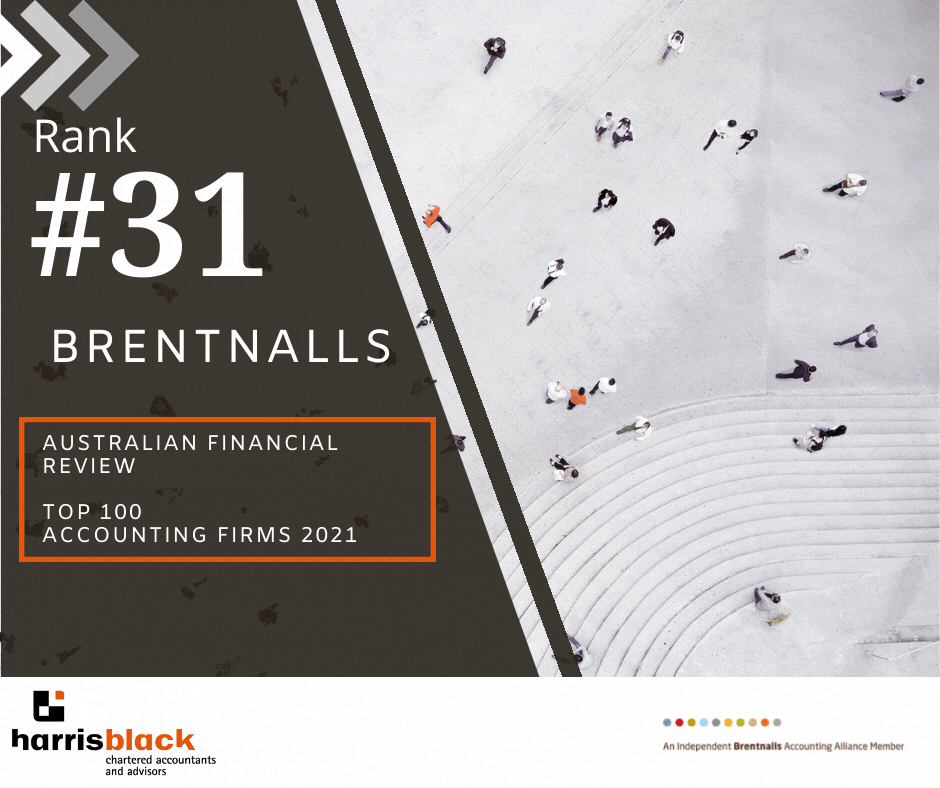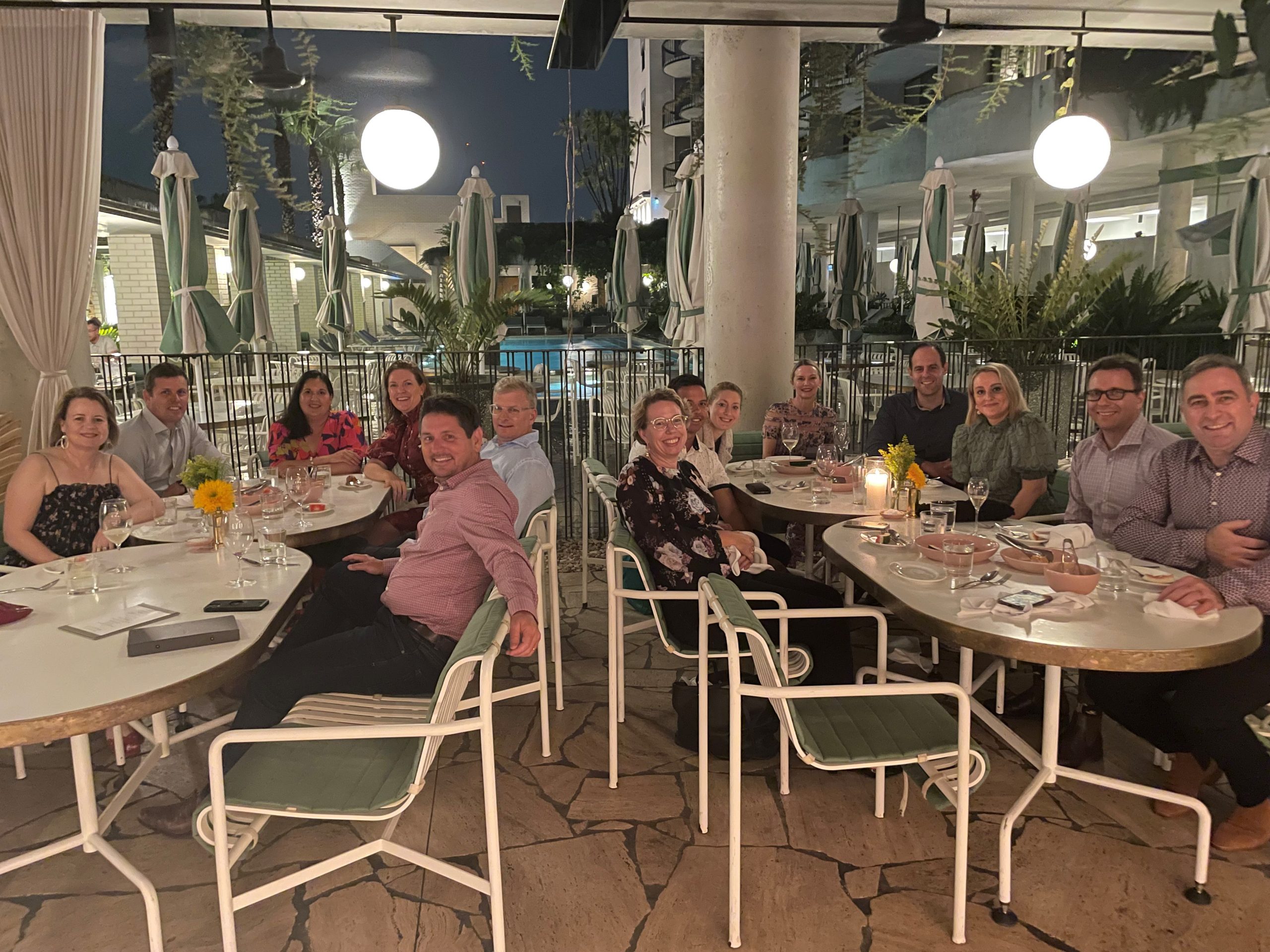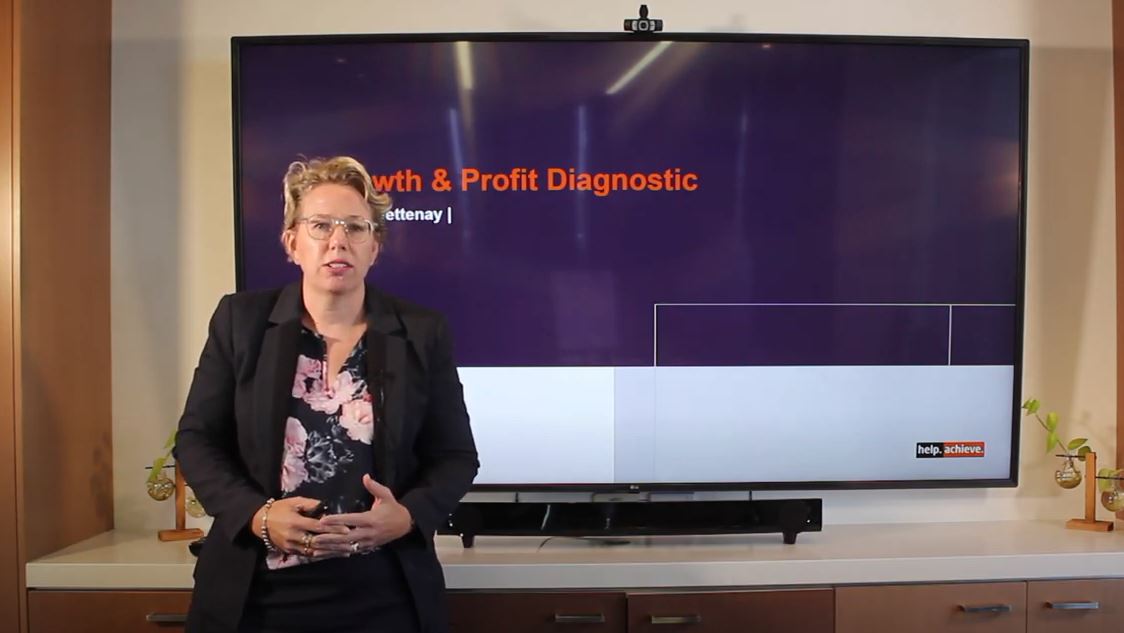Harris Black is proud to be a founding member of the Brentnalls National Affiliation, which has just been ranked 31st in the Australian Financial Review Top 100 Accounting Firms of 2021.
The growth of Harris Black and all firms in the affiliation is a testament to the collaborative model and culture of the group, where the focus is on being better positioned to help our clients achieve their goals.
Author: Harris Black
Brentnalls Conference – November 2021
As many of you will already know, Harris Black is a member of the Brentnalls Affiliation. The affiliation is a network of like-minded, independent Chartered Accounting firms across Australia and New Zealand. Member firms are in Brisbane, Sydney, Melbourne, Adelaide, Hamilton VIC, Perth and Auckland NZ. Harris Black has been part of this dynamic group of professionals for over 20 years. Each of the firms in the affiliation have a similar passion for improving client service and striving for best practice in all areas of business.
On Thursday 11 November 2021, the Directors and Practice Manager (Kimberley Ward) attended the second Brentnalls’ conference for 2021. Normally, this conference would be held over 2 days, however this was reduced to one day as it was again held virtually.
The morning session allowed each firm to present their successes, challenges and goals for the past and upcoming 6-month period. The afternoon session focused on benchmarking and comparing our financial and operational data. In between the sessions, we were able to join zoom rooms which allocates attendees to smaller groups and allows for the conversations we would normally have in a face to face setting.
The evening took us to Hellenika for a Harris Black dinner where conference attendees and their spouses enjoyed a beautiful meal and some well-deserved beverages. All in the Brentnalls Affiliation are looking forward to the first conference for 2022 which, fingers crossed, will be held in Adelaide, giving us the opportunity to return to the normal format and enjoy time with our colleagues.
Important Tax Dates
21 December 2021
Lodge and pay November 2021 monthly business activity statement
15 January 2021
Lodge tax return for taxable large/medium entities as per the latest year lodged (all entities other than individuals)
21 January 2022
Lodge and pay quarter 2, 20211-22 PAYG Instalment activity statement for head companies of consolidated group
28 January 2022
Make quarter 2, 2021-22 super guarantee contributions to funds by this date.
What Should My Business Focus On For The Financial Year Ahead?
By Renee Bettenay
Growth and Profit are two key outcomes of a successful business. But to achieve a successful outcome a number of key factors must come together to create a winning business. At any point in time businesses have strengths and weaknesses in these key success factors and it is important that businesses identify these areas so that strategies can be put in place to help the business succeed. Harris Black, in conjunction with Mindshop, have created a Growth and Profit Diagnostic to help you identify the strengths and weaknesses of your business. Watch this video as Renee Bettenay a Director of Harris Black walks you through the diagnostics and the detailed reporting you will receive specific to your business.
Tightly-Held And Family Businesses… How Does Succession Work?
By Brendan Power
Many of our clients are small-medium businesses (SME’s), but they also have a similar trait – they are tightly-held and/or family businesses. They are surprisingly similar, and an increasing conversation topic has been around the business owner’s succession, and more importantly the ongoing future success of the business.
Challenge
Many of our clients have similar attributes:
Small number of business owners (sometimes just one).
Have been operating for a number of years, generally successful and the business is a large part of their life.
The business is intertwined with family, friends and other investments (eg business premises).
They have a few important senior employees (which may include next generation family) and a small number of key client relationships and referral sources which have all been important drivers to the long-term success of the business.
Most clients want their businesses to succeed into the future and not simply be sold as they are concerned about the well-being of the people and clients they have been working with for a long time.
There have been thoughts of what happens next. You’re enjoying work, and aren’t sure what retirement (or succession) looks like.
Solution
Luck rarely plays a part in succession. Planning is important, often long term, and if you try and fast-track retirement/succession you will often have employees/clients concerned about their own future.
However, the important factors are normally staring you in the face. You need to take your key employees, key clients and key referral partners on a journey… and it takes time.
Most business owners often initially think that retirement/succession means leaving on Friday and not coming back Monday. However, we are finding that more business owners want to reduce their involvement but not necessarily cease working completely (because they enjoy it and care about the future success of the business). This has the following outcomes:
By reducing both hours and ownership over time, this gradual transition to the next generation provides huge comfort to them as you are still available to help with the big deals and decisions, as well as reducing the changeover with continuing clients and referral partners.
Allows you to take on a more managerial role and assist the next generation with their transition to business owners.
There is a need for you to be flexible as the next generation will want to implement changes.
Outcome
It is important to approach succession with a win-win mindset.
We often point out to clients, the most valuable “earn” from their business is the annual profits, not necessarily the sale of the business at the end… This is in fact often the cream. However, by remaining as a business owner for longer during the succession to the next generation can be can be very rewarding and reduce stress on both yourself as you exit the business over time, and the incoming business owner as they learn the ropes.
How can we help?
The type of discussions and assistance we often have with clients includes:
Identifying those key people in the business, and assisting with early discussions so they know there is a future and pathway for them to continue.
The importance of the correct structure, both for:
– the actual business – the wrong structure can be detrimental to the introduction of new owners; and
– the actual shareholder/owner – for both distribution of profits and capital gains implications upon sale.
Appropriate pay structure for current owners (this is often overlooked or below market).
Ensuring an appropriate shareholders agreement is in place.
Save The Date – HB Business Leaders Forum
We’re excited to invite you to our next HB Business Leaders Forum on 18 November 2021 focussing on “The Road Forward – Unlocking Opportunities for your Business in 2022”. For more information on this workshop and to purchase your ticket please click the button below.
Date: 18 November 2021
Venue: Harris Black Office – Level 16 333 Ann Street Brisbane Qld 4000







